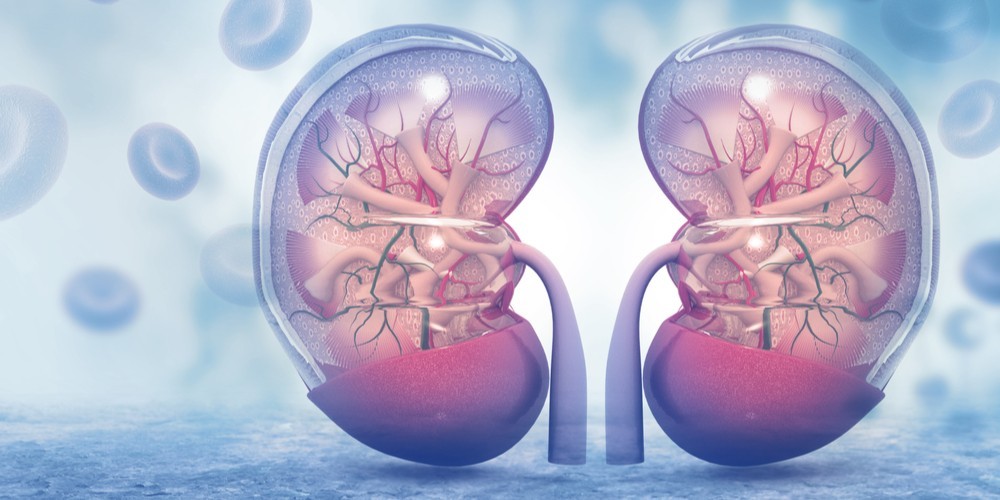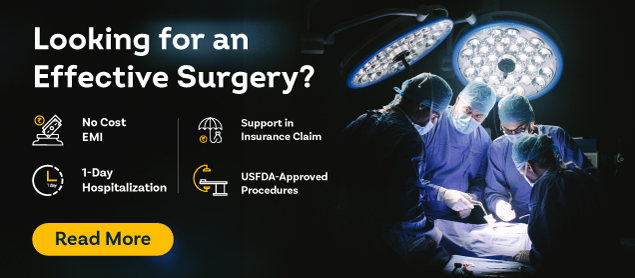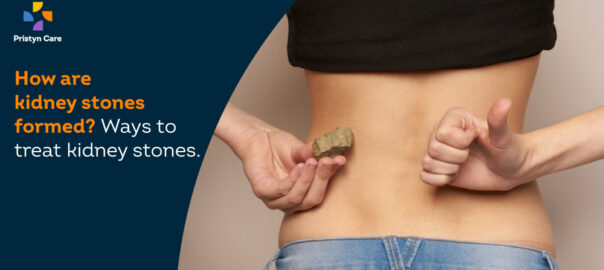![]() Views: 21,970
Views: 21,970
How To Treat Kidney Stone During Pregnancy?
Dedicated Support at Every Step!
Our Doctors are available 24 hours a day, 7 days a week to help you!
Kidney stones in pregnancy need a proper diagnosis in order to rule out any further complications and choose a treatment option. Most of the stones are small enough to pass via the urinary tract but larger stones will require medical intervention.
Kidney stones form due to the crystallization of the minerals in the body. These hardened masses of the minerals cause frequent episodes of intense pain and discomfort.
Also Read- Are you mistaking back pain fro kidney stones?
Table of Contents
Clinical presentation of kidney stones
Pain due to kidney stones is often misdiagnosed as appendicitis or placental abruption. The stones occur in the ureter twice as often as in the kidney and it can affect both ureters in equal frequency. Here are some of the symptoms of kidney stones:
- Radiating pain to the groin
- Renal colic or flank pain
- Dysuria urination
- Blood in urine or hematuria
- Frequent vomiting and nausea
If kidney stones in pregnancy do not pass on their own, it might initiate premature labor, produce intractable pain, cause urinary tract infection or it can interfere with the progress of normal labor.
Urinary stones are an aggregation of the chemical substances dissolved in the urine. When the concentration level of these substances reaches a point and form stones. Kidney stones can be of small size or bigger in size depending on the complexity.

No Cost EMI, Hassle-free Insurance Approval
Physiological changes that cause kidney stones in pregnant women
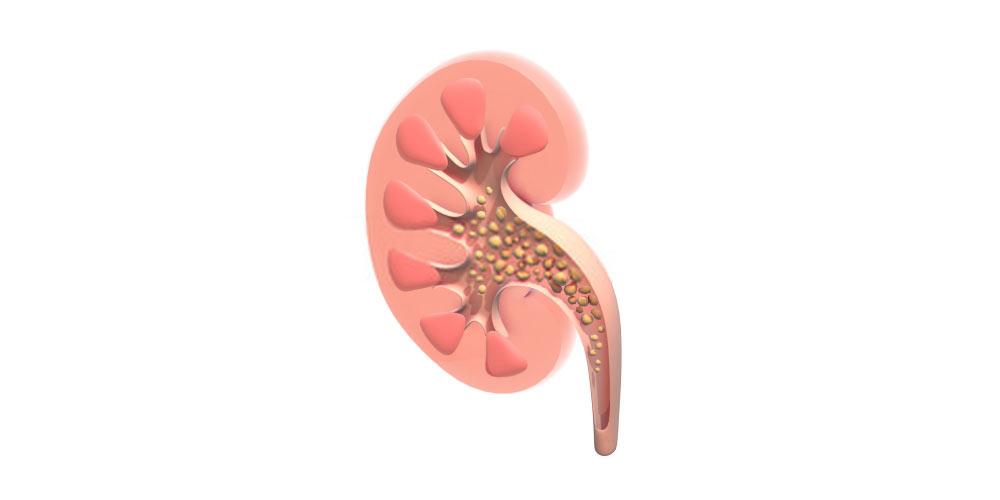
- Bodily changes affect the urinary tract and increase the risk for kidney stone formation.
- Position and the growing size of the uterus tend to restrict the flow of the urine. Thus, too often urine is retained in the kidneys and the bladder. This can result in the development of stones in the urinary tract.
- If a pregnant female frequently catches urinary infections, she is more prone to kidney stones.
- Changes in the levels of the minerals and vitamins during the 2nd and 3rd trimesters heighten the chances of kidney stone formation.
Also Read- How does Pregnancy change the female body
Diagnosis of kidney stones during pregnancy
Urolithiasis in pregnancy is often a diagnostic challenge. Approximately 80-90% of urinary stones are diagnosed after the first trimester completes. Here are various ways to diagnose kidney stones during the pregnancy:
- Urine Culture: A laboratory assessment of urine culture will confirm the infection. Blood work can check the kidney function and increased serum calcium requires investigation.
- Radiological diagnosis of kidney stones: It includes magnetic resonance imaging, the risks from radiation are dependent on fetus age. Obtaining the imaging with the lower dose to treat kidney stones is done in some cases. X-rays are absolutely contraindicated as they are risky to the fetus.
- Ultrasonography for kidney stones: This is the first option for diagnosing kidney stones present in pregnant women. Only specialists can perform the procedure. However, ultrasound does not always show the presence of stones.
- CT scanning: If the symptoms of kidney stones persist and they are causing complex problems, then CT scanning used for a pregnant woman.
- Nuclear renography: A radioisotope is injected into a vein which allows the radiologist to look at the kidneys. Nuclear renography allows a radiologist to clearly visualize the kidneys and check their functioning.
How to get rid of kidney stones while pregnant?
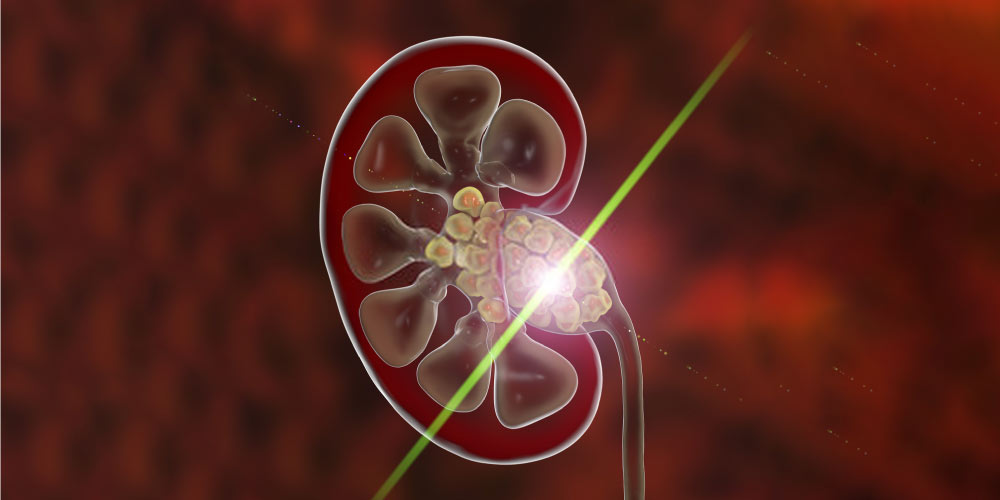
Let’s check out the kidney stone treatment during pregnancy.
Conservative management of urinary stone in pregnancy
The doctor advises the patient for bed rest. The patient should take proper fluid intake and medications to manage the kidney stone symptoms. Most of the stones that are up to 4mm in size can pass normally with high fluid consumption and other dietary suggestions by the doctor. However, stones of size 5-6mm in size do not easily pass on their own through the urinary tract and have high chances of getting stuck in the ureter or urethra. If this happens, surgical intervention becomes necessary for the patient.
Safe surgical treatment for kidney stones during pregnancy
Any type of manipulation in the pelvis, bladder, or ureter could result in premature labor or life-threatening complications for the fetus. That is why any major surgeries are avoided while pregnant. The only safe and minimally invasive surgery is ureteroscopy for pregnant women.
URS (Ureteroscopy)
URS is the recommended method for pregnant women when it is necessary to remove the kidney stone. Holmium is used in ureteroscopy to break down kidney stones. URS is used as an alternative to ESWL in pregnant women.
It is a minimally invasive procedure to get rid of kidney stones. There are no stitches involved in the procedure of ureteroscopy with laser lithotripsy. The laser beam directly acts upon the kidney stones and crushes them down to pass along with the urine. This modern treatment of kidney stones does not require the patient to remain admitted to the hospital for a long time. The patient recovery fully within3-5 days. Hence, it is an absolutely safe treatment for kidney stones.
Kidney stone surgeries that are safe only after pregnancy are:
- Stenting
A stent is placed in the ureter. The tube passes the urine which lessens the burden on the contraction of the urinary tract. The tube won’t be removed till the end of pregnancy. This decreases the chances of kidney stones obstructing the ureter and causing pain. Stenting for kidney stones is a conventional surgical procedure that is invasive and the recovery period is long and discomfort for the patient.
- ESWL (Extracorporeal Shock Wave Lithotripsy)
ESWL uses ultrasonic pulses called shockwaves to break the stones. This surgery is not performed during pregnancy as it can cause fetal damage and death. But, shockwave lithotripsy is highly recommended for non-pregnant women to treat the complicated kidney stones.
PCNL (Percutaneous Nephrolithotomy)
In PCNL, an access tract is created in the kidney's collecting system. PCNL's safety makes it a good treatment option for non-pregnant women. However, PCNL is not recommended during pregnancy. The major reasons to avoid PCNL during pregnancy are because it involves anesthesia and prone position. The prone position is dangerous for a pregnant woman as it requires the patient to lie down on the stomach. Hence, PCNL cannot be carried out in pregnant women to treat kidney stones.
Prevention of urinary stones during pregnancy
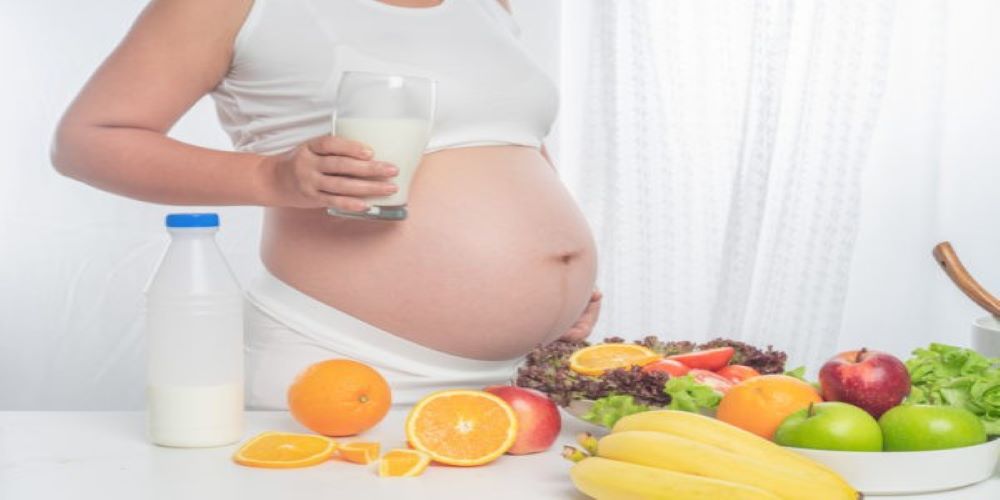
As we know that prevention is better than cure. So, if you are pregnant and want to stay away from kidney stones, preventive measures are a must for you.
Here are some simple tips to prevent kidney stones during pregnancy and otherwise also:
- Drink plenty of water and healthy fluids such as fresh juices to keep your body hydrated and detoxified.
- Have citrus fruits such as lemon, kiwi, grapefruit, blood orange, bitter orange, etc. These fruits prevent the formation of kidney stones.
- Don’t hold the urge to pass urine, even if it means frequent trips to the washroom.
- Have detox water made from lemon, cucumber, watermelon, etc. It helps in eliminating the toxins from the kidneys and promotes their better functioning.
- Avoid caffeinated and carbonated drinks such as tea, coffee, and cola drinks. Excess consumption of these drinks can escalate the formation of kidney stones.
- Reduce your intake of high oxalate foods like nuts, dark green leafy vegetables, dark chocolate, and berries. (Also read: Foods to avoid with kidney stones)
- Do exercise and yoga regularly according to the doctor's advice.
- Quickly consult a doctor in case of any abnormal signs relating to kidney stones.
Also Read:
- Diet chart for kidney stone
- How to dissolve kidney stones with lemon juice?
- How to prevent the recurrence of kidney stones?
FAQs
Yes, kidney stones increase the chances of complications in pregnancy. They can affect pregnancy by increasing the chances of miscarriage, C-section, and preterm labour.
Yes, the high calcium content in the prenatal vitamins increases the chances of formation of the stones in the kidneys. Staying hydrated and having a fiber rich diet are very essential in reducing the risks of formation of the kidney stones.
Approximately, one in about 2000 women usually develop kidney stones during the second and the third trimester of the pregnancy.
Surgery is recommended only in the severe cases of kidney stones during pregnancy. Shockwave lithotripsy is not recommended as it can cause damage to the fetus. Only the uteroscopic treatment is done during pregnancy.
A pregnant woman might have to undergo surgery for kidney stones if they cause kidney infections or obstruction in the urinary tract. These two complications can cause serious ill effects on the health. That is why, surgery becomes necessary in such a scenario.



